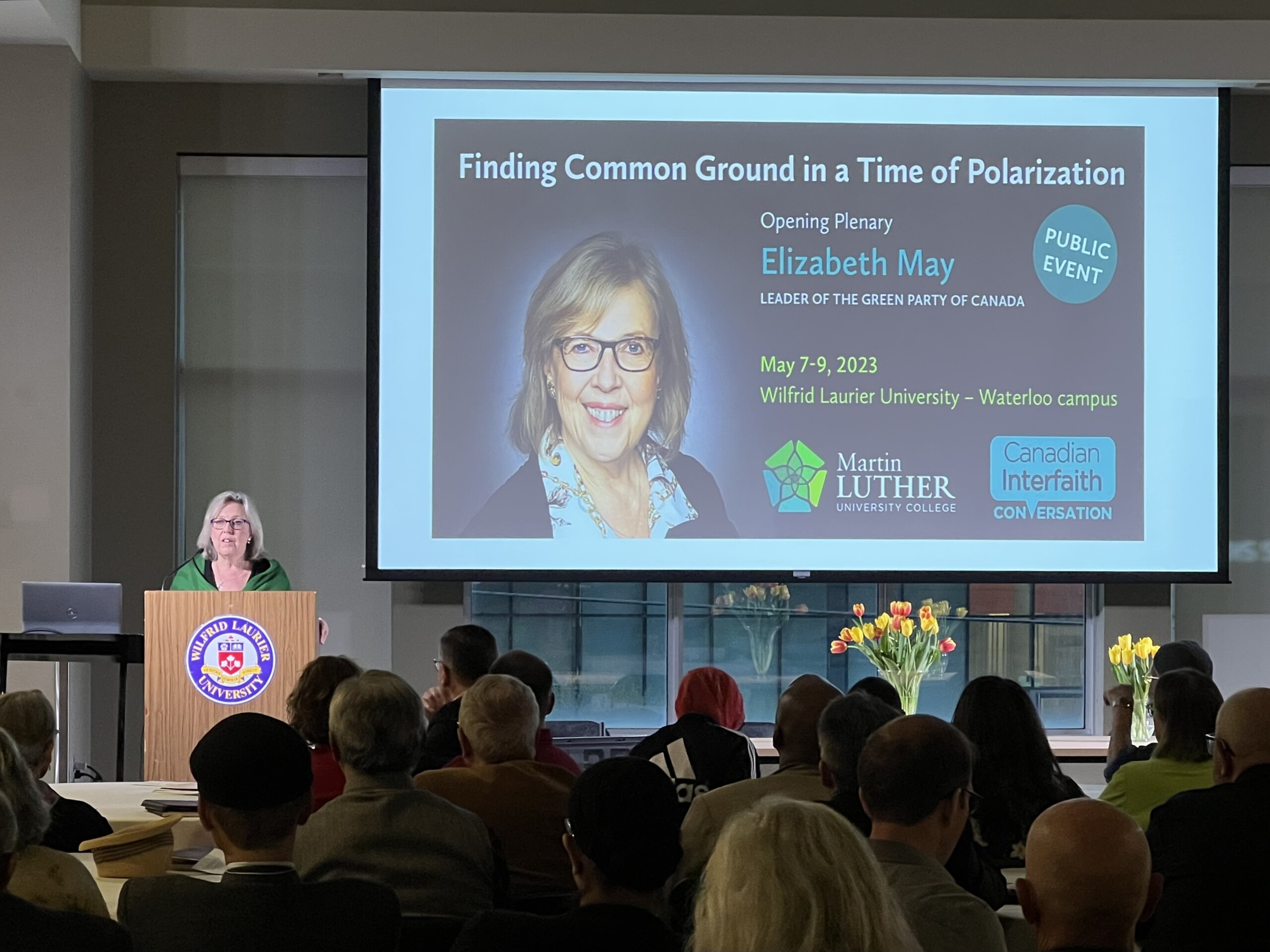More than 120 people gathered at Martin Luther College in Waterloo, Ontario, May 7-9, for the eighth annual Our Whole Society conference. Organized by the Canadian Interfaith Conversation and sponsored by the Social Sciences and Humanities Research Council and the Canadian Race Relations Foundation, this biannual conference focuses on themes related to religion and public life in Canada. It has been actively supported by the Public Affairs Office of the Baha’i Community of Canada since its inception in 2013.




This year’s conference, titled “Finding Common Ground in Times of Polarization,” explored the causes of division in Canadian society and the role of faith communities in addressing polarization. Speakers and participants reflected on constructive responses to disagreements and conflicts, how an open and pluralistic society can accommodate different voices in a vibrant public sphere, and how the voices of spirituality, faith and religion can be a source of inspiration to meet the challenge of polarization.
In her opening address, Ms. Elizabeth May, MP for Saanich-Gulf Islands and Co-Leader of the Green Party of Canada, described the rise of polarization seen in Canada in recent years as a threat to democracy, society and families. . Noting that polarization is often reinforced by feelings of social isolation, Ms. May stressed that it was important that, as an antidote to growing polarization, faith communities had the ability to restore a sense of connection between people of various origins.
Professor Miroslav Volf, director of the Yale Center for Faith and Culture, pointed out that conceptions of identity that legitimize violence for the protection of a group or that prioritize ethnocultural identity over a common humanity prevent the creation of societies characterized by openness and a sense of belonging. The metaphor of “the family home”, as a place that cultivates a sense of belonging, that shapes identity while remaining open and welcoming to others, was presented as a way of imagining how we can orient our own identities to counter polarizing tendencies.
Participants also had the opportunity to participate in numerous workshops between plenary sessions and attended an evening performance by the community choir Inshallah Interfaith – it was the first time that a theme of the conference “A Whole Society” was explored through the arts.
“This year’s program helped conference participants understand and counter the phenomenon of polarization in Canada. Additionally, the Whole Society Conference itself can be seen as a way to counter polarization,” said Ms. Andrea Salguero, Director of the Public Affairs Office of the Baha’i Community of Canada and Board Member. of the Canadian Interfaith Conversation. “Through their participation in this weekend, these people from different walks of life have already shown how to approach the differences of points of view in a respectful and constructive way. »
Links to the recordings of the plenary sessions and the concert of the Inshallah choir will be available on the website of Our Whole Society in the coming months.
Our Whole Society conference explores polarization in Canadian society

